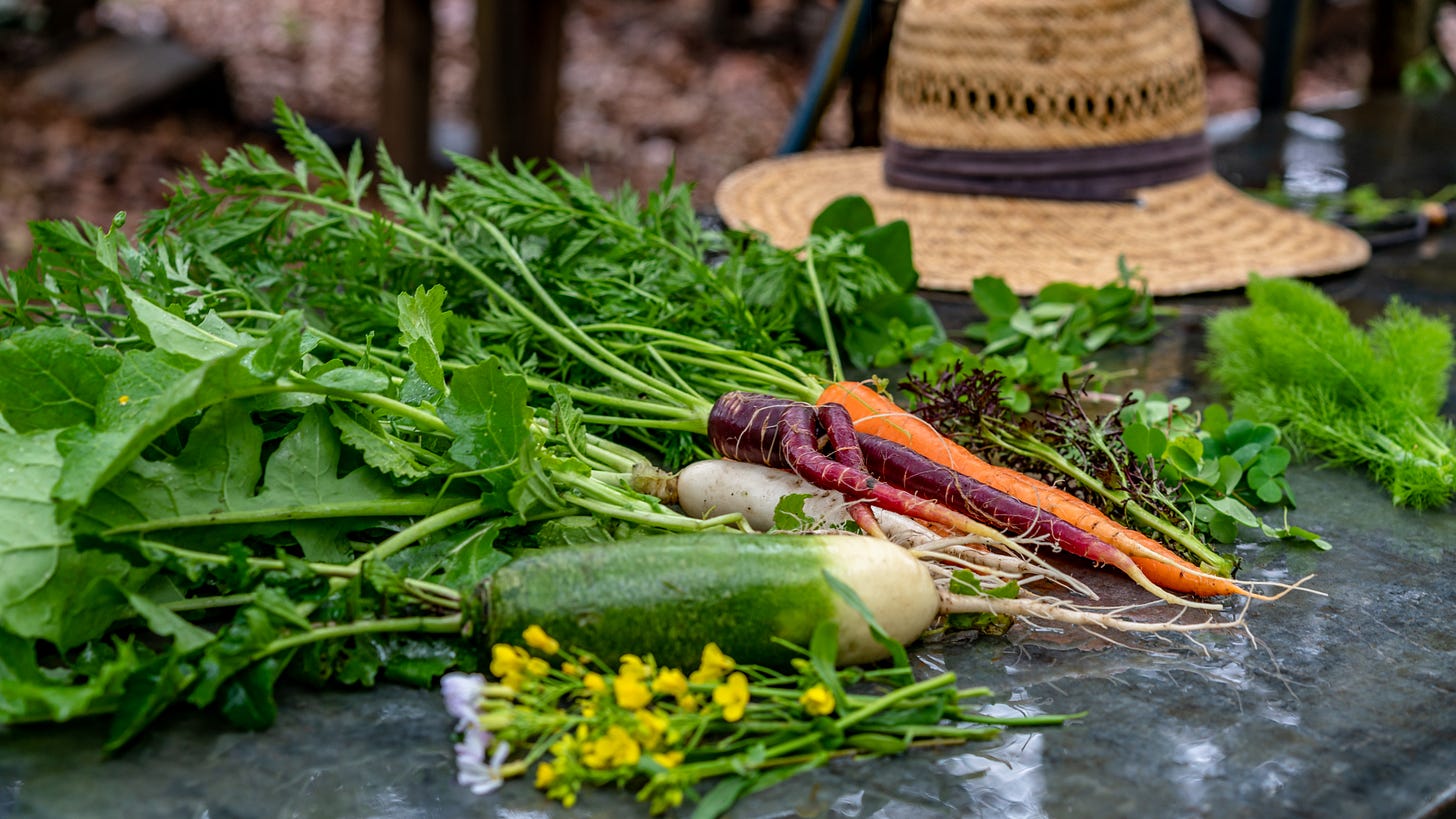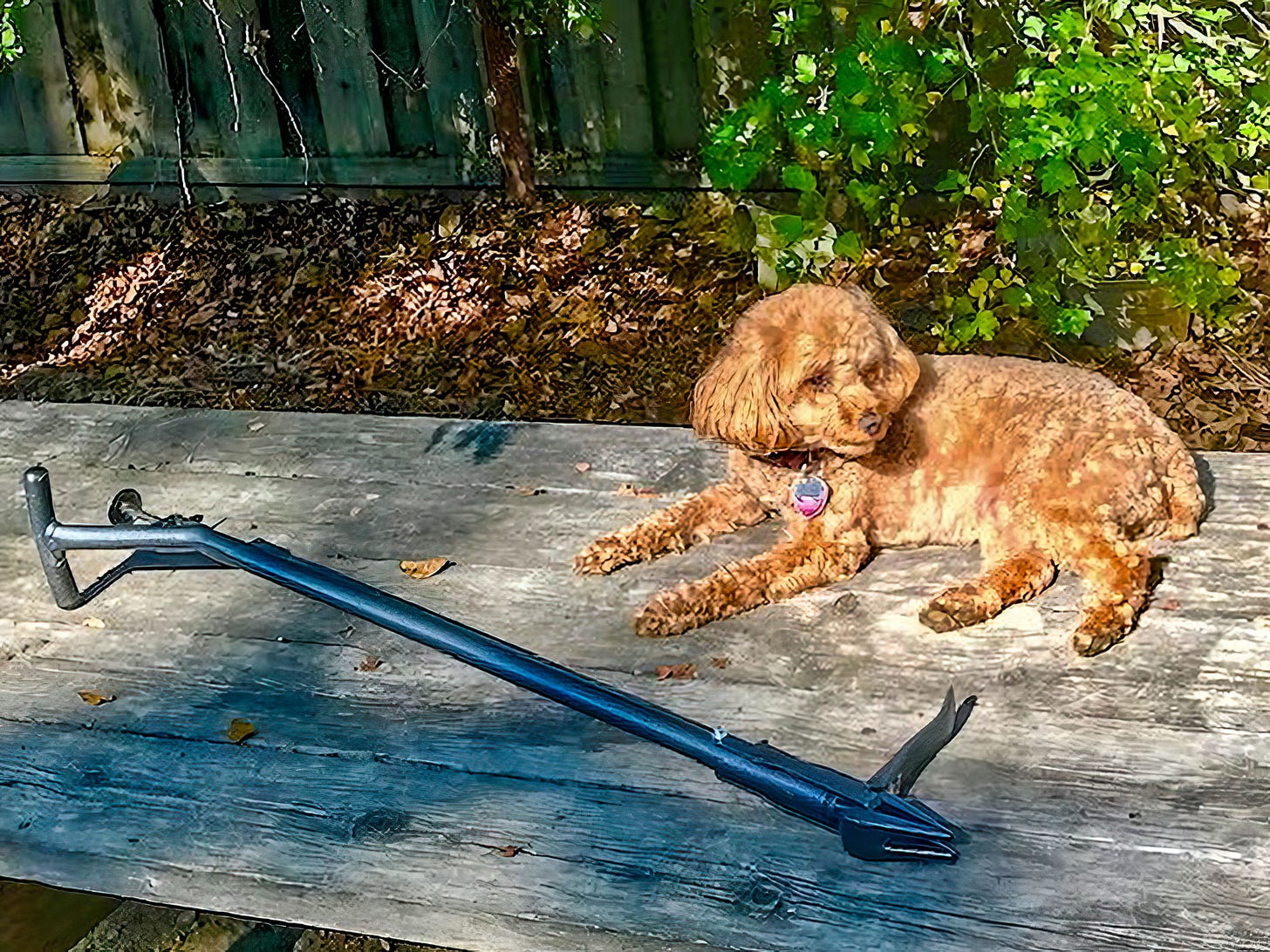NAPA VALLEY, Calif. — We have had our first rain, and the nights are starting to get cold. Napans are fortunate: We can enjoy our gardens pretty much year-round, and that includes working in them. I welcome rain. First, it means fire season is over. It also softens the soil, making it easier to pull out weeds — being sure to wear gloves.
While I appreciate the relaxed, naturalistic gardening style that is popular today, I still remove weeds. They compete with plants for water and nutrients, and they can take over a yard as well as shelter pests. I bought a standing weed puller that I saw at an event at Las Flores Learning Garden in Napa that is wonderful for a gardener with back or knee issues. It means that we don’t have to bend to weed.
This is the time of year to inspect your plants. Remove dead or diseased branches and put them in your yard-waste container. Healthy plant clippings can go in your home compost. After you have finished your clipping and trimming, clean, oil and sharpen your tools. Dull tools are tedious to use and hard on plants. Then put the tools away safely.
It’s still too early to prune roses, but you should dispose of any rose leaves lying on the ground since they might harbor fungus, a common issue with roses.
The trend now is to leave dried perennials as they are, without cutting them back. After all, that’s what happens in nature. Most people have limited space, however, and if you don’t want a plant (such as echinacea) to spread, you can deadhead it after the birds enjoy the seeds. A dried milkweed has its own beauty and can add an architectural element to your yard, but it needs to be back eventually to make room for the new growth.
The days are shorter and colder, so adjust your irrigation system. Your plants don’t need as much water as they did in the summer. Those of us without irrigation systems are overjoyed that we can cut back on the hand-watering.
Renew your mulch, which discourages weeds. Fallen leaves make an excellent mulch and provide habitat for beneficial insects — more food for the birds.
Plant wildflower seeds now for spring and summer bloom. You still have time to plant some bulbs, too.
The biggest danger to plants in winter is frost. Even in Napa we have had cold snaps with temperatures dipping into the 20s. In my yard, the plants in danger from frost are daphne, brugmansia and Meyer lemon as well as potted pelargoniums, coleus and lemon verbena.
A plant that has suffered frost damage looks scorched. That’s because frost disrupted the plant’s water circulation and the plant has dried out. You can move small potted plants into a shed, into your house or next to your house, preferably facing south. You can cover them with a sheet, but use a frame to keep the sheet from touching the plants to avoid frost damage.
Another option is commercial frost cloth, a lightweight polyester material that can be draped directly on the plant without hurting it. Many nurseries carry frost cloth.
Cloth draping works best for larger plants, like citrus trees. For smaller plants, prepare for the cold by collecting cardboard boxes. On a night when frost is forecast, just place the boxes over your frost-tender plants. You can also cut the bottoms out of plastic gallon milk bottles and use them as plant protectors.
After it warms up during the day, remove the boxes and sheets. Frost cloth can stay in place because it lets light through. If all this frost protection seems like a lot of labor, consider that it’s even more laborious (and sad) to uproot a Meyer lemon tree killed by the cold.
I welcome the “don’t work yourself to death” new garden aesthetic, but we can’t escape weeding and tidying. We can make the chores more manageable, however. I like to work in 15-minute increments. It is surprising how much you can accomplish in a quarter of an hour. With me, the time usually stretches to 90 minutes without my realizing it.
I get ideas for my yard while I am digging and mulching. I make notes on what was successful that season and what needs rethinking. My dog keeps me company, and I even enjoy watching the squirrels, those little scamps, burying walnuts in a newly tidied flower bed.
Gardening Workshop: Join UC Master Gardeners of Napa County for a free workshop on “Gardening With the Masters” on Saturday, Nov. 18, from 10 a.m. to noon, at OLE Health Garden, 300 Hartle Court, Napa. Children 5 and older are welcome if accompanied by an adult. Class size is limited. Register to attend.
Help Desk: The Master Gardener Help Desk is available to answer your garden questions on Mondays and Fridays from 10 a.m. until 1 p.m. at the University of California Cooperative Extension Office, 1710 Soscol Ave., Suite 4, Napa. Or send your questions to mastergardeners@countyofnapa.org. Include your name, address, phone number and a brief description. For best results attach a photo.
Cindy Watter is a UC Master Gardener of Napa County.







Helpful information. Thank you.